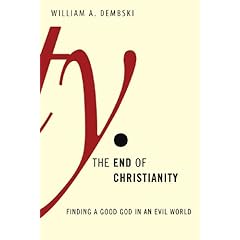Investor’s Business Daily posted an article relating Obama’s Healthcare Bill to the National Institute for Health and Clinical Excellence (NICE), the technocrats responsible for the U.K.’s health care. The article states:
This administration, pledging to cut medical costs and for which “cost-effectiveness” is a new mantra, knows that a quarter of Medicare spending is made in a patient’s final year of life. Certainly the British were aware when they nationalized their medical system.
The controlling of medical costs in countries such as Britain through rationing, and the health consequences thereof are legendary. The stories of people dying on a waiting list or being denied altogether read like a horror movie script.
The U.K.’s National Institute for Health and Clinical Excellence (NICE) basically figures out who deserves treatment by using a cost-utility analysis based on the “quality adjusted life year.”
One year in perfect health gets you one point. Deductions are taken for blindness, for being in a wheelchair and so on.
The more points you have, the more your life is considered worth saving, and the likelier you are to get care.
The British are praised for spending half as much per capita on medical care. How they do it is another matter. The NICE people say that Britain cannot afford to spend $20,000 to extend a life by six months. So if care will cost $1 more, you get to curl up in a corner and die.
These NICE people bring to mind another technocratic group I’ve read about called the “National Institute of Coordinated Experiments (NICE)” in C. S. Lewis’s 1945 novel That Hideous Strength: a Modern Fairy-Tale for Grown-Ups. Those NICE folks in Lewis’s novel were an institution which would decide who lived and who died in accordance to their agenda of control and advancement of the remaining people into a Utopian, omni-competent and global scientific technocracy. That Hideous Strength was the fictional representation of the governmental materialism and scientism philosophy of social control Lewis described in The Abolition of Man, in which Lewis explains:
It is the magician’s bargain: give up our soul, get power in return. But once our souls, that is, ourselves, have been given up, the power thus conferred will not belong to us. We shall in fact be the slaves and puppets of that to which we have given our souls. It is in Man’s power to treat himself as a mere `natural object’ and his own judgements of value as raw material for scientific manipulation to alter at will. The objection to his doing so does not lie in the fact that this point of view (like one’s first day in a dissecting room) is painful and shocking till we grow used to it. The pain and the shock are at most a warning and a symptom. The real objection is that if man chooses to treat himself as raw material, raw material he will be: not raw material to be manipulated, as he fondly imagined, by himself, but by mere appetite, that is, mere Nature, in the person of his de-humanized Conditioners.
The Investor’s Business Daily article continues: Read More ›
 Yesterday I met with the literary publicist hired by Broadman & Holman to promote The End of Christianity when it is released November 1st (for the Amazon.com listing, go
Yesterday I met with the literary publicist hired by Broadman & Holman to promote The End of Christianity when it is released November 1st (for the Amazon.com listing, go